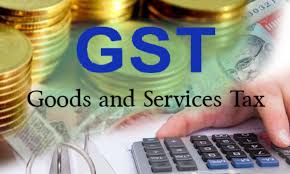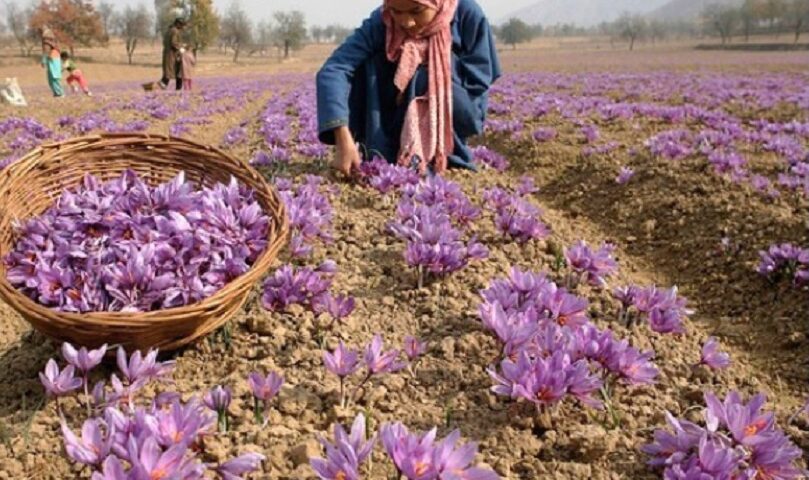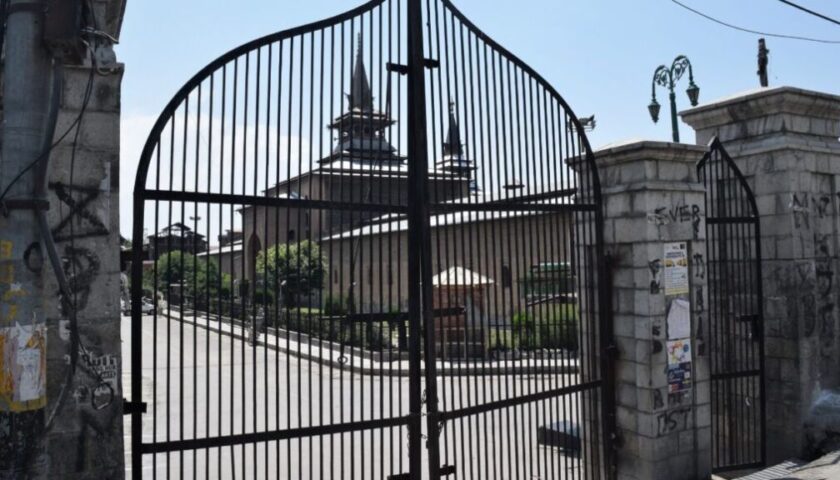Civil society members, traders and opposition parties Thursday threatened to launch civil disobedience movement if the government implements Goods and Services Tax (GST) in Jammu and Kashmir.
Terming the tax bill a “big assault” on the fiscal autonomy of the state, Chairperson of Kashmir Centre for Social and Development Studies (KCSDS), Prof. Hameeda Nayeem said, “The political collaborators take people for granted for keeping themselves in the seat of power.”
“It will have bad impact on the traders. It is a big assault on the fiscal autonomy. We need to take it seriously and it is important to save the fiscal autonomy of the state,” she said in a round table conference organised by KCSDS.
The participants said there should be no compromise on Article 370 and other constitutional provisions.
“Disobedience movement will be launched and the responsibility for the consequences would squarely fall on the government,” they warned.
Senior civil society member, ShakeelQalandar said there are five lakh enterprises in the informal sector across J&K and three lakh artisans. “Five lakh people are dependent on horticulture which is also part of the agriculture and heart of the economy here. Government both at centre and state level are glorifying tourism but not the other sectors,” he said.
“What will happen to our horticulture sector if the government implements the law in the state?” he questioned.
Referring to the legal perspective of the issue, Justice (retired) HasnainMasoodi said: “J&K has a special position so as far as GST is concerned it will mutilate the constitution.”
He said there should be no compromise on liberty and sovereignty of the people.
Masoodi said Finance Minister, HaseebDrabu should have an open public debate on the issue “if he has the courage to implement the law”.
Terming the implementation of GST as an attack on the fundamental rights of people, State Secretary, Communist Party of India, Mohammed YousufTarigami said the fundamentals of Constitution of India which provide several provisions for the citizens is under attack.
“Apart from that autonomy is being squeezed and eroded,” he said.
He said the unorganised sector will be affected.
Reacting to the statement of HaseebDrabu in which he has said that the implementation of GST would be advantageous, Tarigami said: “There is already huge erosion. Decisions have to be taken by the majority of the people.”
“We had already suggested that in the all-party meeting, they are taking people for granted. They are making preparations and are going to join the celebrations,” he added.
Noted columnist, JavidIqbal said the present situation of the state was not conducive to implement the law.
“HaseebDrabu once said that the implementation of the law would influence the economy,” he said.
“Is legislation important or people? What hinders government from putting it public domain,” Iqbal questioned, adding, “The remaining provisions are going to be grossly eroded.”
AwamiIthaad Party (AIP) chief, ErRasheed said here was complete ignorance and immaturity on part of the government.
“Government should defer the law and make it public first so that they came to know what is being implemented,” he said.
Jammu and Kashmir Democratic Party Nationalist (DPN) chief, Ghulam Hassan Mir said there is no need to discuss whether the fiscal autonomy would be eroded or not. “Implement the law in a modified manner and explain to the people via any means,” he said adding, “If a modification is accepted then it is okay.”
He said he has been told by the business community of Jammu that they have no problem in the implementation of the law.
Mir requested the government to explain and study the long-term impact of GST.
He suggested that people should be given multiple options before the law gets the final nod.
Provincial secretary of NC, Showkat Ahmed Mir said they would like to defer the process. “It has to be implemented but not in the way Centre thinks. It has to be implemented in a modified form so that it would not prove difficult for the traders,” he said.
He said the government did not hand over the blueprint to any one from the opposition.
“We are going to meet again in this regard. NC is with the civil society and will leave no stone unturned to protect Article 370,” he said.
Former Chairman, J&K Public Service Commission, Mohammad ShafiPandit said that government should come clear on the law.
“They must come forward with a document and put it in public domain and then frame a policy,” he said. Pandit said there are certain things which people do not know
Former Chief Information Commissioner, G R Sofi said National Conference should support the opposition on the issue.
At the round table conference, representatives of business community also shared their views on the GST controversy.
“We are not fully against GST. There are some good things also which need to be appreciated. There is also a need to make a separate model and roadmap so that it would not snowball into a major controversy,” said Vice President of Federation Chamber of Industries Kashmir (FCIK) Javid Ahmad Bhat.
The participants resolved that J&K government should put the GST model in public domain for thorough discussion.
Representatives of Kashmir Chamber of Commerce and Industry (KCCI), RTI Movement, KEA, KEF, KTMF, CCIK, Young Entrepreneurship Forum, academicians, trade experts and lawyers were also present on the occasion.
Civil society picks holes in Govt claims over GST implementation in JK, threatens ‘Civil Disobedience Movement’




